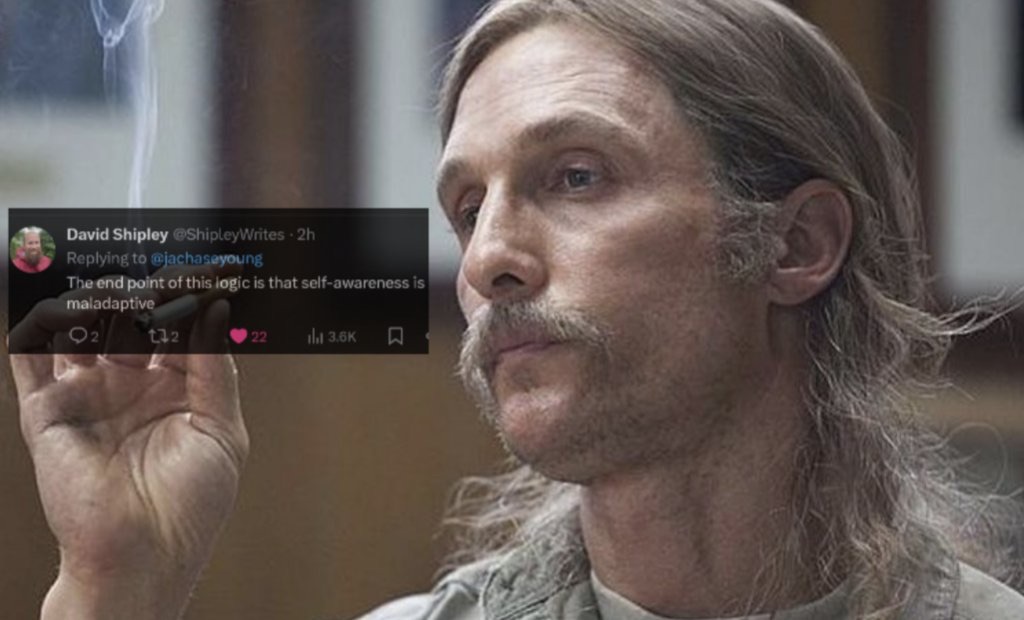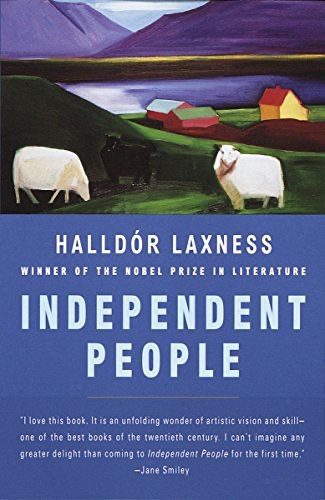Some chunk of the population doesn’t have an inner monologue. A fascinating video of a young woman describing her lack of an inner monologue caught my attention today.
I’d describe her experience as literal shape rotation with what is a “memory palace” visualization of the world.
I can’t imagine not having inner monologue. I have a bicameral mind and can picture imagery and movement in my head and discuss it with myself.
Her description of her thought process is akin to having filing system and seeing her thoughts in that system rendered in a flexible database. It’s like she’s a computer.
Other reactions to this video have churned through my mind. Is self awareness maladaptive? Would a future intelligence find this bicameral mind inefficient and go back to unicameral. What other forms exist? Can we toggle it up and down? Is it a gradient in humans of types of cognition and the inner voice is just a processing error?

Oh my god, I get it now. The bicameral mind is still in the process of breaking down. Inner monologues are holdovers, doomed to be outcompeted by more efficient mind
Jordan Chase Young
Is this “breakdown” a the shift away from perceiving the voice as external to the self? Is it the erasure of the voice wholesale? What will artificial intelligences make of these differences in human minds? Is this special? A tiger isn’t bicameral.
I think this is relevant to our moment in artificial intelligence development. A Finnish mathematician wrote one of the best science fiction novels I read in the last decade on quantum minds and memory palaces. There is a side plots with embodied intelligences on Mar.
The Quantum Thief is a science fiction novel by Finnish writer Hannu Rajaniemi and the first novel in a trilogy featuring the character of Jean le Flambeur; the sequels are The Fractal Prince and The Causal Ange
Wikipedia
I’ve got a hazy theory about Nordic decentralized engineering culture and mental organization. It’s not a coincidence that fifteen years ago a Silicon Valley Finnish computer scientist wrote some of the best science fiction about a theory of mind that was interior and perfectly organized right?
I may need to go read Julian Jaynes.
An un-cameral mind, as proposed by Julian Jaynes in his theory of bicameral mentality, refers to a state where cognitive functions are divided between two parts without consciousness or meta-reflection. In this non-conscious mental state, individuals lack the ability to reason, articulate mental contents, or have executive ego functions like deliberate mind-wandering. The breakdown of this division led to the emergence of consciousness in humans, characterized by the capacity for introspection and autobiographical memory[1][3].
Jaynes suggests that ancient people in the bicameral state experienced auditory hallucinations as commands from gods, guiding their actions without conscious evaluation. This theory has influenced discussions on consciousness, language, and culture, although it has faced criticisms and debates. Despite differing opinions, Jaynes’s work remains a thought-provoking exploration of the origins of consciousness and continues to inspire research in psychology and consciousness studies[3][5].
Sources
[1] Bicameral mentality – Wikipedia https://en.wikipedia.org/wiki/Bicameral_mentality
[2] The Origin of Consciousness in the Breakdown of the Bicameral Mind http://www.compilerpress.ca/Competitiveness/Anno/Anno%20Jaynes%20Bicameral%20Mind1.htm
[3] The Origin of Consciousness in the Breakdown of the Bicameral Mind https://en.wikipedia.org/wiki/The_Origin_of_Consciousness_in_the_Breakdown_of_the_Bicameral_Mind
[4] Retrospective: Julian Jaynes and The Origin of Consciousness in … – jstor https://www.jstor.org/stable/10.5406/amerjpsyc.125.2.0237
[5] The Origin of Consciousness in the Breakdown of the Bicameral Mind https://www.amazon.com/Origin-Consciousness-Breakdown-Bicameral-Mind/dp/0618057072
I saw someone else say meditation is literally teaching people how to run a monocameral emulator. I’ve done these types of exercises as a child. It sounds a bit Bene Geserit but mental exercises around focus was part of the German theosophical tradition that gave us Rudolf Steiner.
I wish I’d be a bit more organized on this but I’ve been fully back on work so this will have to do for today.
